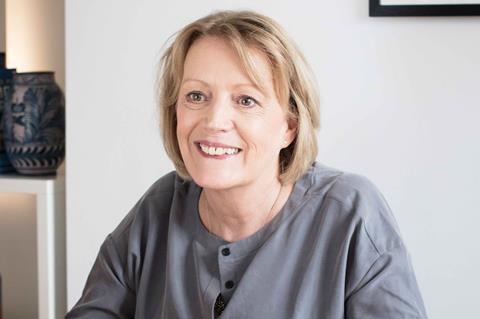Louise Rodgers challenges the idea that age defines us at work – pointing instead to the impact of what’s happening in our wider lives

There are now five generations active in the workforce, from the so-called ‘Silent Generation’ (those born between 1928 and 1945) to Generation Z-ers (those aged between 13 and 28).
It’s all too easy to attach lazy stereotypes to each cohort (‘snowflake’ millennials or ‘greedy’ boomers), but more productive to focus on what the different groups have in common. These often align around things such as fair and competitive pay and benefits; hybrid and remote working options; career-advancement and fulfilment opportunities; and recognition of flexible work styles.
Another thing we all have in common is a life outside of work. If we have learned nothing else from the Pandemic and the shifting sands of our journey through life, it should be that the difference between the personal and the professional isn’t always neatly demarcated. All of us have people and priorities that sometimes conflict with the person we need to be at work, or what we have to achieve when we are there.
This is one reason why I am uncomfortable about the distinction between being a ‘personal’ or life coach and being a ‘business’ or ‘executive’ coach. I always allow plenty of space within the coaching relationship for taking a holistic approach to the issues the client brings to coaching and, perhaps because I do that, ‘real life’ often walks right in.
What people often need to talk about is how to balance whatever is going on for them outside of work with their professional responsibilities.
One of the many interesting findings of a current piece of research being undertaken by my friend and colleague (and podcast co-host), Rachel Birchmore, is that this experience of conflicting priorities is an area of commonality between the age cohorts, but one more likely to be found amongst older people in the workforce.
Rachel has been speaking to representatives of all five age groups represented in the workplace about attitudes to work and what this means for leaders and leadership.
Unsurprisingly, there is quite a lot of evidence within the findings (more about which will be available soon) that it is not just age, but life stage, that impacts on this.
Rachel tells me that one theme of the research is that, as people mature, work competes with different elements of life.
We can all do more to engage with people who are in different life stages to our own and to understand the particular and individual challenges they are facing
When asked about the importance of work in their lives, many respondents spoke of shifts and splits in identity. In response to the question about attitudes to work changing as younger people enter the workplace, someone wrote “I think life stage has a lot to do with it, whether that’s social life, family or financial or caring responsibilities” (survey respondent over 45+) and others alluded to the same.
So how do we respond to this? I have been reading around the challenges and opportunities presented by managing five different generations in the workplace, but I haven’t found much about how it is life stage, not age itself, that is at the crux of the challenge.
In the last year or so, I have both become a grandmother and experienced the declining health of a parent. I am truly caught up in being one of the ‘sandwich’ generation – adults who have caring responsibilities across the generations. This has had an impact on how I now walk through the world, and it would be useless to deny that or pretend that it isn’t happening.
As always, communication is key. When I have had to postpone sessions because of what’s going on with my Dad I have been open with clients about the reasons for this. Sometimes this has encouraged them to want to talk about their own challenges in this area and I have realised that too often I am the first person they have talked to about it, who is not an immediate family member or friend.
We can all do more to engage with people who are in different life stages to our own and to understand the particular and individual challenges they are facing. I have written before about encouraging better and more open conversations around death and bereavement in the workplace, but how about encouraging better and more open conversations around how we are living?
Postscript
Louise Rodgers is Building Design’s professional coach. A personal and business coach, she co-created and co-delivers Step Up, a leadership development programme for built environment consultants.
Do you have a question for Louise? If so email louise@eidyia.co.uk. She will use the most interesting in her columns but cannot enter into individual correspondence.
















No comments yet